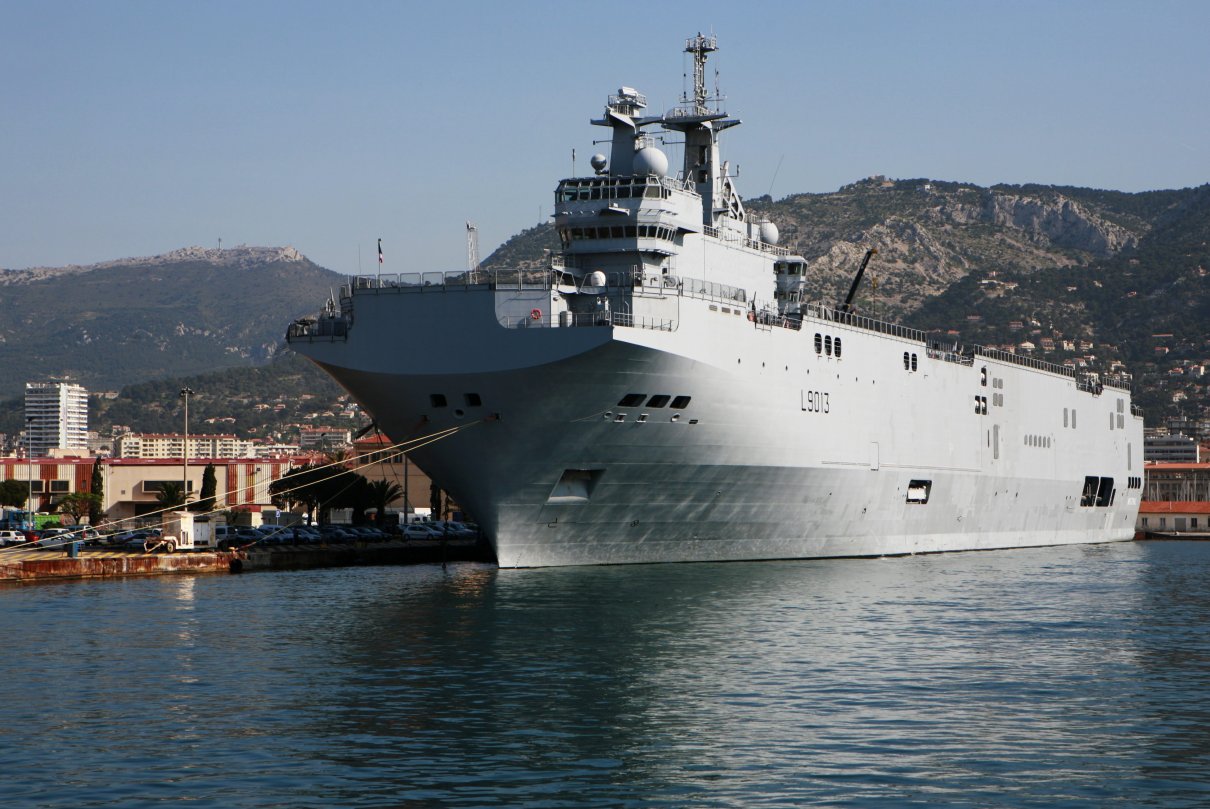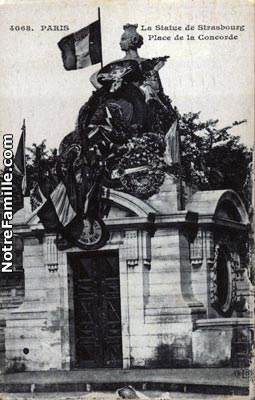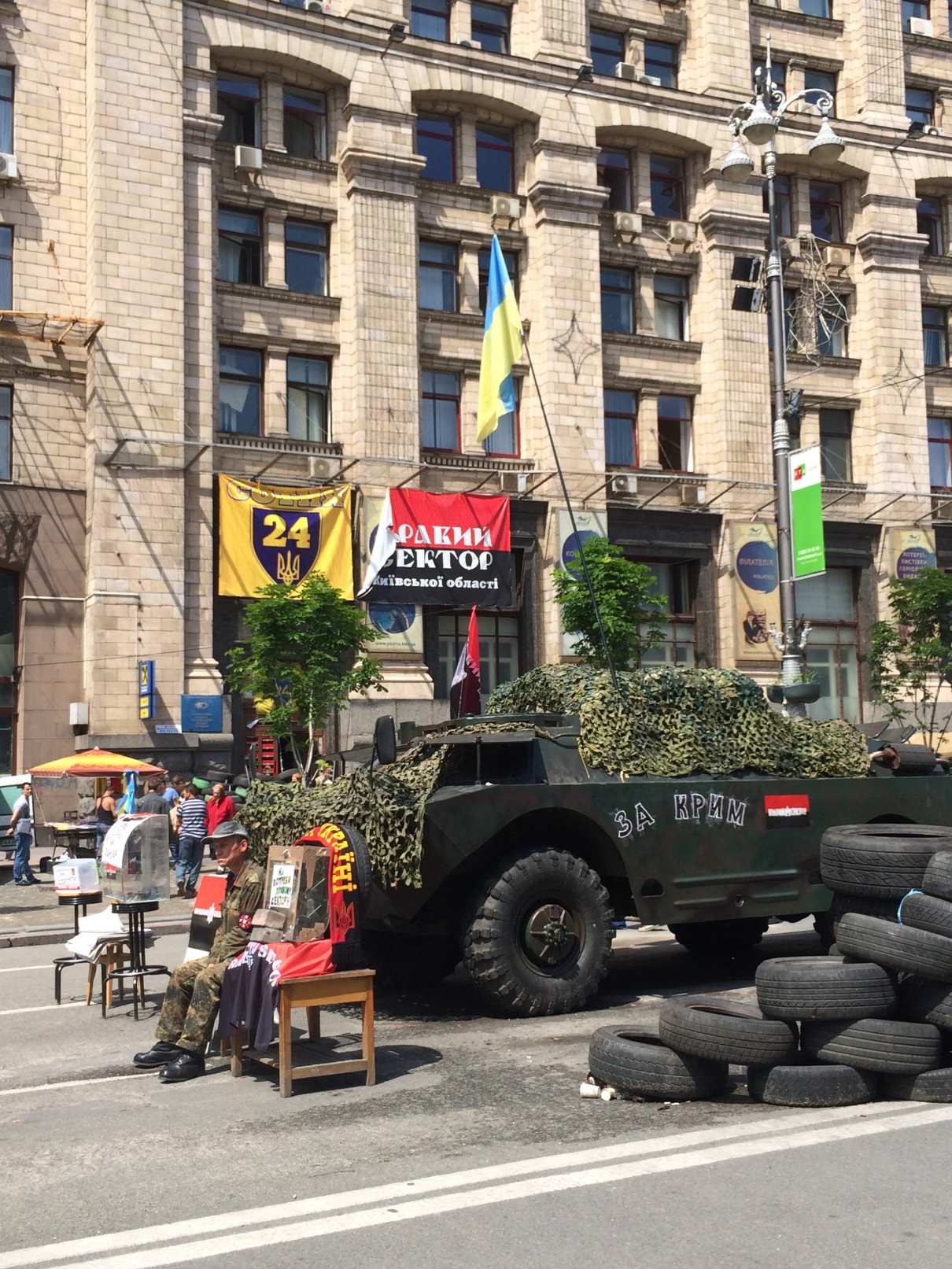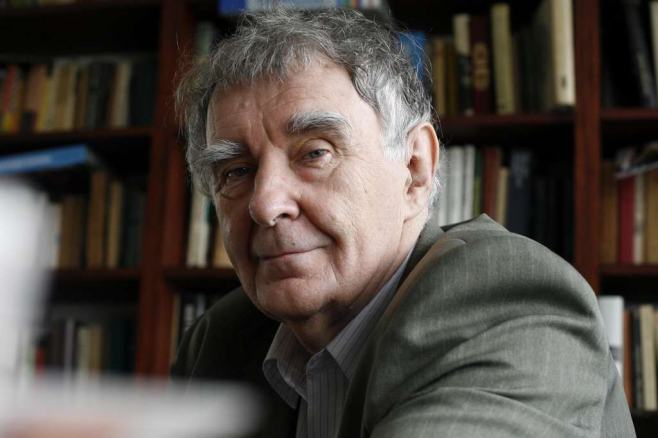France’s selling warships to Russia – the first arms deal between a NATO member state and Russia – has alarmed Ukraine and its supporters. Ukraine has seen Russia seize Crimea and escalate violence in eastern Ukraine. Russian president Vladimir Putin has not hidden his intention to “do whatever he wants” with the ships.

In 2011, France made a deal worth 1.2 billion Euros to Russia to build two Mistral-class warships with amphibious assault capacities. Russia has the option to buy two more. The first ship, the Vladivostok, will leave the French port of Saint-Nazaire in October. Both states have been involved in its production. At the end of June, 400 Russian sailors came to Saint-Nazaire to train with the ship’s high-tech weaponry. In October 2015, the French are to deliver the Russians a second warship, the Sévastopol, named after the Black Sea port in the Crimea, which was annexed by Russia earlier this year.
Saint-Nazaire’s union leaders fear cancelling the sale would deprive 600 to 1,000 workers of their jobs in the shipbuilding industry and thousands more in subcontracting firms, making worse an unemployment rate already at 14 percent.
French officials have considered not delivering the Sévastopol, but that depends on European Union leaders imposing much more severe sanctions on Russia, including freezing the assets of Russian oligarchs in London, which would cost the city’s financial industry dearly.
France’s far right sees the Mistral ship deal as an important step for France reasserting a more independent foreign policy.
As the far right welcomes France’s move away from the EU and the United States, and as Saint-Nazaire workers understandably fear for their jobs, the French may want to reflect on their own history and the national wounds that came when foreign aggressors threatened their future.
Like Sevastopol in the twenty-first century, the French city of Strasbourg, along with the provinces of Alsace and Lorraine, were seized by Germany in the Franco-Prussian War of 1870-71.

On Paris’s Place de la Concorde, the City of Strasbourg has had a statue in its honor since the 1830s. After 1871, French citizens draped the statute for Strasbourg in black and decorated it with wreaths to mourn the loss of Alsace and Lorraine. Losing Alsace and Lorraine became a serious wound for the French nation. “We shall see France arise again, we shall see her retrieve Lorraine, take back Alsace,” vowed writer Victor Hugo in 1871. “But will that be all? No… Seize Trier, Mainz, Cologne, Koblenz, the whole of the left bank of the Rhine.”
The loss of Alsace and Lorraine fueled a political movement on France’s far right called the Ligue des Patriotes (the League of Patriots) dedicated to retaking the two provinces and exacting revenge on Germany. A desire to strike back at Germany, la revanche, kept growing between 1878 and 1889. Far right leader Georges Ernest Boulanger, a French general, was at the height of his popularity in January 1889. He threatened to seize power, establish a military dictatorship, and strike at Germany. Parliamentary elections in September 1889 led to a major defeat for his party, the Boulangists, and the threat of a coup d’état soon disappeared.
Over time, the pain felt over the loss of Alsace and Lorraine diminished. On the eve of World War I, French symbolist poet and novelist Rémy de Gourmet, said, “I wouldn’t give the little finger of my right hand for those forgotten provinces. My hand needs it to rest on as I write. Nor would I give the little finger of my left hand. I need it to flick the ash from my cigarette.” French politicians, too, learned to live with the loss. In July 1914, Prime Minister René Viviani said France could not go to war with Germany over these provinces without international support. Still, for over 40 years, French citizens placed black ribbons and wreaths on the statue for Strasbourg.
France regained Alsace and Lorraine after World War I, and true to Victor Hugo’s words, the French went on to occupy the Rhineland after Germany refused to make reparations payments. Nazi Germany took back Alsace and Lorraine during World War II, and it was only after that war that France regained the two provinces for good.
Strasbourg has gone from being a source of national wounds to becoming a center of reconciliation between France and Germany. It is now home to the European Parliament and a number of other European institutions, including the Council of Europe and its European Court of Human Rights.
Sevastopol, Donetsk, and Luhansk risk becoming Ukraine’s lost cities in the twenty-first century. While there are no statues where people can mourn their loss in Ukraine’s capital, Kyiv, the political far right, like Boulanger two centuries ago, has vowed to take back the nation’s lost territories.

On Khreshchatyk Street, which goes past the protest city on the Maidan, Right Sector, a far right paramilitary organization operating in the Donbas, displayed an armored personnel carrier bearing the inscription, “For Crimea.” Right Sector is not alone in these sentiments. Ukraine’s new defense minister, Valeriy Heletey, on his appointment by parliament on July 3 vowed to take back Crimea and promised, “There will be a victory parade… in Ukraine’s Sevastopol.”
Will the Donbas and Crimea become a point of reconciliation between Russia and Ukraine? It looks very doubtful these days. Thus, French citizens should consider whether or not they wish to support a weapons program that essentially will escalate a conflict that just might bring on the kind of carnage World War I inflicted on Europe.
[hr] William Risch is an Associate Professor of History at Georgia College and author of The Ukrainian West: Culture and the Fate of Empire in Soviet Lviv (Harvard University Press, 2011). He is in Kyiv contributing to the Ukraine Crisis Media Center.








